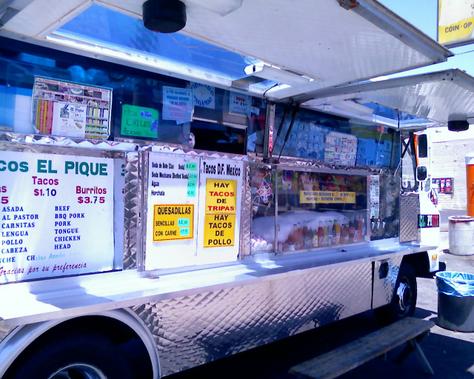The rise of food trucks as an eating out option requires knowledge of this sector. Balancing the reality of the food truck sector with access to safe food should guide actions and public policies to cater to its peculiarities. Therefore, this study aimed to characterize the Brazilian food truck vendors’ profile regarding their socioeconomic status and compliance with food safety rules.
 From the 118 food truck vendors registered in the Brazilian Federal District, 30% (n = 35) participated in the study. We conducted structured interviews from December 2017 to April 2018. We ranked compliance levels according to a five-point Likert scale based on calculated compliance scores. The interviews revealed that food truck vendors were mostly married males, who had completed at least a tertiary education level, and wanted to start up their own businesses. The compliance levels depict good compliance with food safety rules (overall compliance (OC)-score = 0.69, on a 0 to 1 scale).
From the 118 food truck vendors registered in the Brazilian Federal District, 30% (n = 35) participated in the study. We conducted structured interviews from December 2017 to April 2018. We ranked compliance levels according to a five-point Likert scale based on calculated compliance scores. The interviews revealed that food truck vendors were mostly married males, who had completed at least a tertiary education level, and wanted to start up their own businesses. The compliance levels depict good compliance with food safety rules (overall compliance (OC)-score = 0.69, on a 0 to 1 scale).
The food trucks assessed in this study distinguished themselves from the street food and food retail sectors due to their operational structure and the complexity of food production processes. Those particular features should be considered to ensure adequate and effective sanitary control and inspections, as well as to reduce the probability of microbial growth and food contamination and the consequent risk of foodborne illnesses.
Who is serving us? Food safety rules compliance among Brazilian food truck vendors
International Journal of Environmental Research and Public Health
Ligia Isonia Auad, Veronica Cortez Ginani, Eliana dos Santos Leandro, et al



.jpg) owner watched the DVD and raved about what he saw … saying in a letter, "SEX + FOOD + FUN = well, just about all my favorite things! A 10 for sure."
owner watched the DVD and raved about what he saw … saying in a letter, "SEX + FOOD + FUN = well, just about all my favorite things! A 10 for sure.".png) The vote, originally scheduled for Tuesday, has been pushed back a week.
The vote, originally scheduled for Tuesday, has been pushed back a week..jpg) give information about their vehicle whereabouts and mandates that the trucks be inspected twice a year.
give information about their vehicle whereabouts and mandates that the trucks be inspected twice a year.  own risk?
own risk?